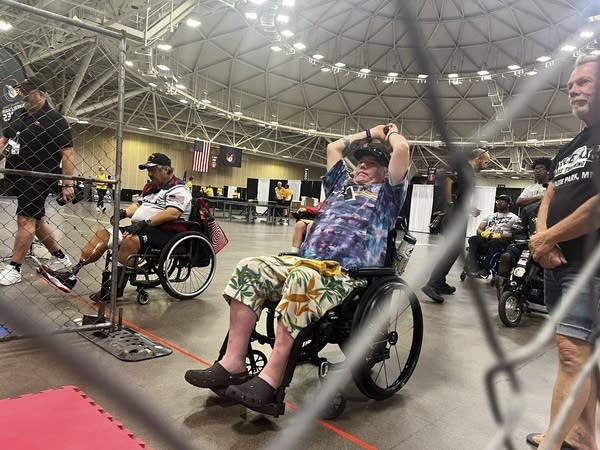Channeling Paul Bunyan: Veterans try axe throwing at National Wheelchair Games in Minneapolis

A veteran gets ready to throw his axe at the axe-throwing exhibition of the National Veterans Wheelchair Games on Thursday in Minneapolis.
Kyra Miles | MPR News
Go Deeper.
Create an account or log in to save stories.
Like this?
Thanks for liking this story! We have added it to a list of your favorite stories.


